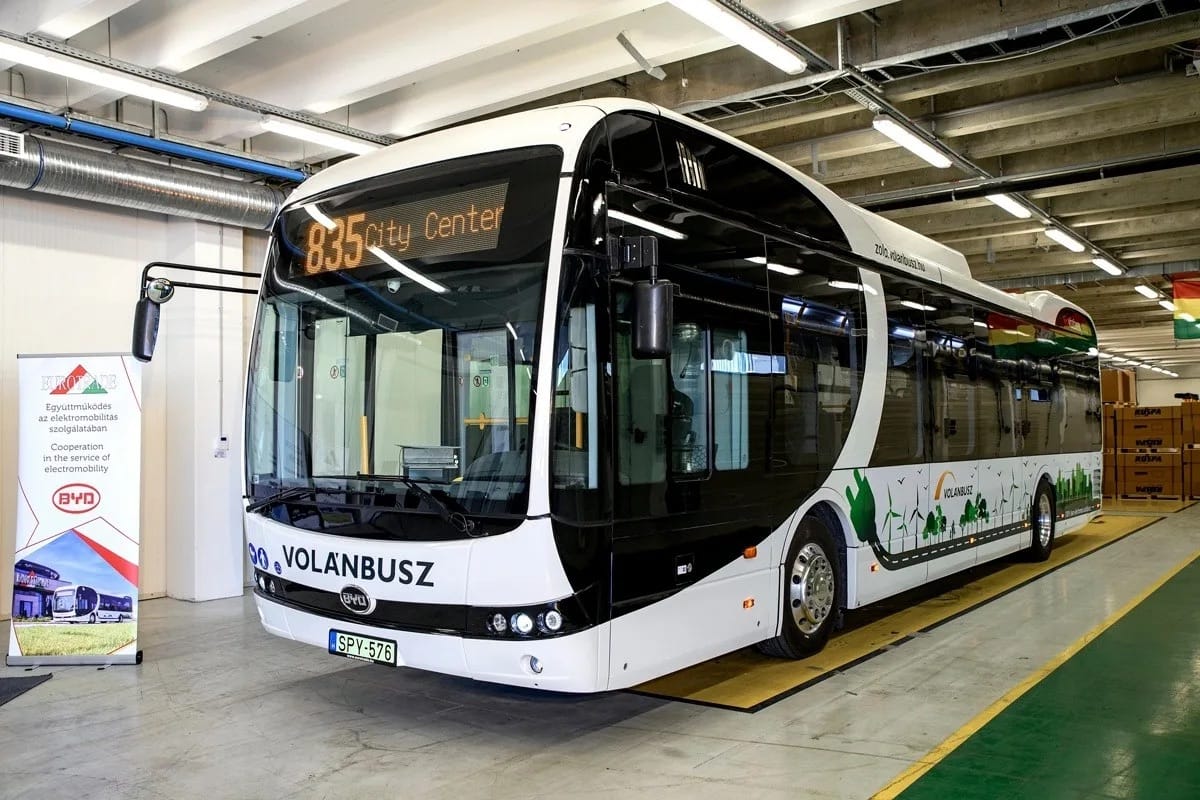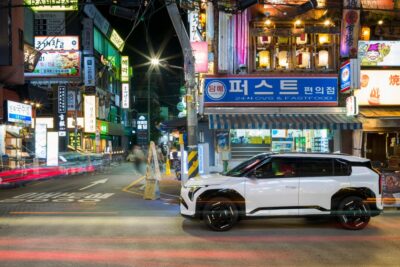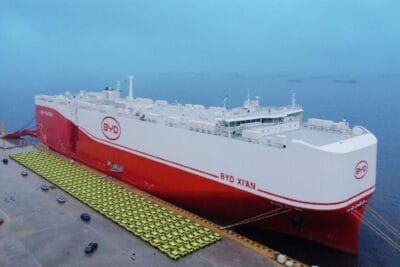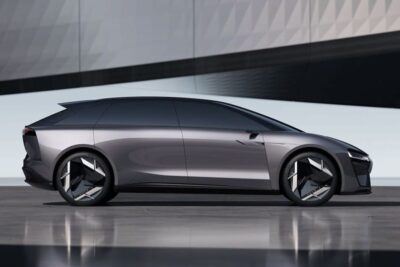Electric Buses for Europe: BYD triples capacity at Komárom plant
BYD continues to invest in Hungary. The factory in Komárom, dedicated to building electric commercial vehicles, is set to grow. BYD has been manufacturing electric buses there for the European market since 2017 – currently up to 400 units per year. According to Hungarian Foreign Minister Peter Szijjarto, BYD is now injecting a further 32 billion forints (equivalent to around 80 million euros) into the site in northern Hungary to triple its annual capacity to 1,250 electric buses and trucks.
Reuters quotes him as saying: “We Hungarians do not consider East-West cooperation a threat, but rather an opportunity, a big opportunity.” The government supports the project, which is expected to create around 620 new jobs, with 3.1 billion forints, equivalent to approximately 7.8 million euros.
With the expansion of its electric bus factory, BYD drives forward its localisation strategy. The company already operates battery assembly plants in Fót and Páty. Production of electric cars is also due to begin at the end of 2025 at a new plant in the southern Hungarian city of Szeged.
In addition, BYD plans to relocate its European headquarters to Budapest – including an R&D laboratory. The latter is seen by industry observers as a ‘reward’ from China for Hungary’s opposition to European tariffs on China-made electric vehicles. EU countries that voted in favour of these tariffs, by contrast, have recently faced ‘punishments’ such as the withdrawal of already planned Chinese car production. This was the case in Poland, where Leapmotor cancelled production plans.
Back to Hungary: the new BYD headquarters in Budapest will be built in the 11th district of the Hungarian capital and, according to company statements, will create thousands of new jobs in the region. Local media previously said that there would be around 2,000 new positions open. Furthermore, it plans to cooperate with at least three Hungarian universities.
Meanwhile, construction work at the vehicle plant in Szeged is progressing. Around six months ago, BYD top manager Stella Li announced that production would start at the end of 2025. Initially, the Dolphin and Atto 3 are set to roll off the production line, followed by the Atto 2 and a European version of the Seagull small car.
It is worth remembering that BYD had already announced the construction of its electric car factory in Hungary at the end of 2023. In February 2024, it was reported that the plant would open within three years. With a start of production (SOP) at the end of 2025, BYD would beat its own target. However, this is likely only achievable with the change of plan to bring the two well-known compact models to Europe first – and not to begin, as previously announced, with the Seagull.
Although the plant is set to ramp up only gradually, it plays a key role in the Chinese company’s European plans. According to Li, up to twelve models could later be built in parallel at the site.





0 Comments